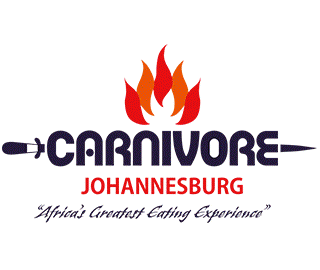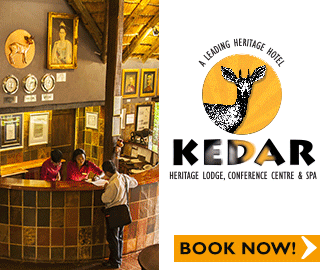
Beyond Beliefs
BY LIBBY POWEL 2ND AUG, 2013 07:00
In an abandoned yard in central Freetown, a young man is making his way through the shadows of two burnt-out cars. His legs are buckled by polio into a knot beneath him and he pulls himself forward on his fists. His name is Fengai,he is 21, and this is his home: a neglected community of disabled street children in one of Sierra Leone's forgotten corners. "This," Fengai spits out, "is a bomeh,a dumping ground, for rubbish and for the crippled." He gestures around at a gathering of tiny broken huts. A crude tattoo on his arm spells out "Go Arsenal"."There are more than 50 of us here and we have nothing. No water,no food. They are sick, these boys, but who will help them? Go home," he shouts, "and tell them that we are living in misery!"Fengai is shaking with frustration and anger. But after 10 years as a disabled street child in one of the world's poorest countries, he knows his voice is heard by few.
The United Nations estimates as many as 30% of street children in Sierra Leone are disabled. Many have been outcast because of their disability, chased into the shadows by social stigma and family shame. On the streets they are exposed to disease,abuse and hunger. Yet often the streets are safer than home.The belief that disability is caused by sin, voodoo or black magic is deeply entrenched in Sierra Leone, especially in the rural provinces. Without the most basic health awareness, misconceptions about the causes of disability can thrive. Such beliefs can ignite fear in a community and inflict terror on an already vulnerable child. In the worst cases, it can lead to neglect, abandon mentor infanticide.Eleven years of civil war in Sierra Leone brought about an increase in disability.
Thousands of young people suffered,both as a result of forced amputations – the tragic hallmark of the rebel forces – and the collapse of the national health system including childhood immunizations. As vaccinations ceased, disabling diseases such as polio crept back into dilapidated villages and over crowded slums, mainly affecting children under the age of five.
Professor Osman Bah, West Africa regional programme manager of Leonard Cheshire Disability, is no stranger to this suffering. He contracted polio in his formative years and has struggled throughout his lifeagainst the prejudice that can destroy lives. He now supports hundreds of young people like Fengai, who have been rejected by their communities because of their disability. On the risks facing disabled young people, he is very clear: "The most dangerous threat is ignorance. Ignorance will keep a disabledchild locked away or it will forceher out on to the streets. Here in Sierra Leone, parents do not have access to the medical knowledge that teaches them that polio is a disease of poverty caused by a virus and poor sanitation.Instead a child will be taught to hate and fear itself."
Traditional healers, rather than a medical professional, are commonly sought to cure children's disabilities. At a centre for epilepsy in east Freetown, a group of women recall their experiences of traditional remedies. Aminata's seizures started as a young child;"I was taken to a juju man. He boiled herbs and I had to inhale the leaves. Afterward she poured the mixture intomy nose. When it did not work, my family rejected me. They told me thedevil had taken hold of me."
Dr Max Bangura, who runs the centre,says the practice of traditional healers is often cloaked in secrecy. This can allow a darker side to thrive: "Sexual abuse of young disabled girls is common. A healer may tell the girl that the devil is a jealous spirit and that sexual relations will drive him away. A girl arrived at my centre who had been made pregnant by a healer in this way. When he found out, he said it was the devil's child and forced her to drink kerosene."
Some, however, are unable to flee.Sitting under a tree in a village in the rural district of Koinadugu, Leonard Cheshire Disability community worker, Alusine Koroma lowers his voice as he speaks of a four-year-old girl with cerebral palsy who was brought before the community elders by her parents. Confused and frustrated by the child's inability to talk or walk, they proclaimed that the child must be bewitched. To rid the community of this evil, they carried her deep into the forest where they dug a hole and buried her alive. "I am afraid this is common," says Koroma sadly, "and it rarely makes the news."
Dominic O'Neill, head of the UK Department for International Development in Sierra Leone, has watched the spotlight move away from the region as the child soldiers of the civil war are reintegrated and the conflict recedes. "The plight of vulnerable children in Sierra Leone continues and we cannot stop working to protect their rights, especially for those children with disabilities."
With less than a third of the populationable to read or write, however, the spread of information needed to change attitudes is slow. But inside a radio station in the northern town of Kabala, 23- year-old Elizabeth Katta is preparing to speed things up. For the last two years she has been campaigning for awareness as part of Leonard Cheshire Disability's Young Voices programme, which empowers young people with disabilities to become agents of change in their communities.
In 2009, Young Voices successfully lobbied the Sierra Leonean government to ratify the United Nations Convention on the Rights of Persons with Disabilities. At the dawn of a new chapter of post-war governance, this small group of young people grabbed the chance to initiate change for those with disabilities across the country.
Each member of Young Voices has their own story of courage to share. Elizabeth, for instance, knows she is lucky to be here. Her eyes harden as she speaks of the chronic neglect she suffered at the hands of her mother. Abused and starved, she was told she would amount to nothing. Today, after an hour on the microphone at the radio station, her face is shining. With the same force of youth as Fengai, she shouts out, "The time for action is now! We have been hidden for too long. We are here and we speak for the voiceless."
"I was not born blind," says Agnes. "When I was 13, I contracted a pox, which went into my eyes. I was taken to the hospital but it was to no avail. They spoke to us of African mischief [voodoo] so I was taken to the traditional herbalist. He rubbed herbs into my eyes. In the process my eyes went out." As Agnes struggled to adjust to her life without sight, her mother also struggled to cope. "When I became blind, I lost my mother's love. She would leave me so hungry; she did nothing to care for me. I only survived with the help of neighbours."
When the rebels came during the civil war, Agnes's mother gathered her daughters and ran. Agnes was left behind. Unable to follow, she sat in the empty house and listened in terror as people raced past. A voice inside told her that she would die if she stayed there. "So I crawled to the door and waited. As soon as I heard somebody I grabbed hold of that person and hung on. We ran. Later I was found and taken to a church in Freetown." After the war, Agnes was enrolled in school, where she learned to read braille. Eight years later, she is about to start university. With the Young Voices programme, she has spoken out about disability rights to audiences across the country. She has also forgiven her mother.















